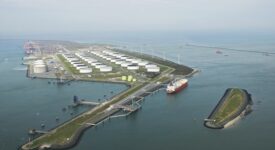Banking sector in Bulgaria and Austria has recently been faced with some serious troubles, albeit in each country for different reasons. Bulgaria, already confronted with a serious political crisis, is now trying to deal with what the country’s State Agency of National Security has described as a criminal attack by spreading “false, ill-intended information against Bulgarian banks to destabilize the banking system.” On Friday (27 June), Bulgarians queued for hours to withdraw their money after receiving emails, text messages, and alerts on social media that their deposits were not safe at the First Investment Bank, the country’s third biggest lender. Acting swiftly, the following day, President Rossen Plevneliev called an emergency meeting with political party leaders and Ivan Iskrov, governor of the central bank. After the five-hour meeting the president sought to allay the public’s fear by stressing that “There is no cause or reason to give way to panic. There is no banking crisis, there is a crisis of trust and there is a criminal attack.” The European Commission has also stepped in, announcing yesterday (30 June) that it has approved a credit line for the banks to the tune of 3.3 billion leva (around €1.7 billion).
Meanwhile, many in Austria have started to worry about the country’s financial reputation after the high-profile banking debacle in which the embattled and now state-owned Hypo Alpe Adria bank will start the process of resolution in September. This next step in what has been a lengthy and acrimonious process is expected to cause a stir both at home and abroad. The Carinthia state-based bank became state property in 2009 at enormous cost to Austrian taxpayers. Back in 2004, there were many allegations of lax bank inspections, dubious property sales and even money laundering, while two years later it even emerged that Hypo Alpe Adria’s management had manipulated the bank’s balance sheets to cover up losses in risk-trading. In 2007, Hypo Alpe Adria – with close ties to the Carinthian government – was sold to the Bavarian state bank, Bayern Landesbank.
However, three years later the first allegations surfaced that the deal amounted to insider trading – the issue started to turn political when it was reported that the then ruling party, Haider’s Alliance for the future of Austria (BZOe), as well as the Carinthian People’s Party (OeVP), obtained illegal party funding worth millions of euros. Now, in 2014, the Austrian government’s decision to turn Hypo Alpe Adria into a bad bank essentially means that a guarantee by the province of Carinthia will be bypassed and the losses will be forced on investors. It is expected to trigger a flood of lawsuits, both at home and abroad. The ‘Hypo Law’, on which the Austrian parliament held hearings earlier this month, is already having consequences: eleven Austrian banks have been downgraded by ratings agencies while four provinces will likely be downgraded in August.
Article Tags:
Austria · Bavarian state bank · Bayern Landesbank · Bulgaria · Hypo Alpe Adria · Investment Bank · Ivan Iskrov · Rossen PlevnelievArticle Categories:
ECONOMY & TRADE





